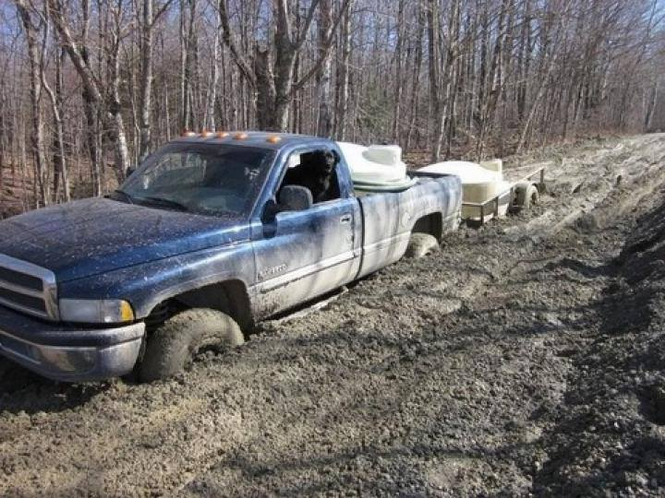Our sheep arrived yesterday morning in the same horse trailer but separate trips. The first crew was due to arrive between 10:30-11:00. The phone rang around 11:15 and Kimberly told us that “things weren’t quite going as planned..” What wasn’t planned was that one of the sheep had decided that she didn’t really feel like ubering to our place so jumped the fence not once, not twice, but three times.
Kimberly arrived a little after noon a little sweaty. Paul and I had spent the morning running electronet on each side of the walk way from the driveway to the first paddock, their red-carpet of sorts. Kimberly opened the double doors on the back of the trailer and, after a moments hesitation, out stepped the first sheep. She was, and remains, the leader of the flock. Once she was out the others, deciding it was better to be with the devil you know than the devil you don’t, clamored out after her. There they stood, mashed together, one body, five heads.
Immediately understanding fence philosophy, they began to walk down toward the paddock. We all walked sedately behind them. Sam and Bronte pouted inside the house feeling quite put out that there were, quite obviously, sheep arriving and they weren’t allowed to have any part of it. The sheep proceeded, en mass, without hesitation directly into the first paddock. We humans all gawked at each other in disbelief because we had imagined and prepared for some wrangling. (I think Paul was a bit disappointed that there was no wrangling)
Several times during the afternoon I feigned needing to “get something from the lower shop” just to stand at the gate and watch them. They immediately found the basswood tree and hunkered underneath it out of the sun. The third trip I found the lead ewe sprawled out in the shade - way too relaxed for having just arrived and it occurred to me that I may have already killed her. But no...she was, again, napping.
Around 7pm we got a call from Bruce saying that the second set of two sheep would be arriving within the next half hour, same trailer, different sheep.
We had left the runway fence in place and waited while Bruce unhooked the latch on the double doors. These two were vocalizing up an indignant storm. The door swung open, we all stood back, and waited. Indignant, perhaps, but not stupid. So Bruce used a bit of cajoling to entice them out of the trailer. One they hit the ground they didn’t stop: leaning into one another, they cornered the lower road and zipped into the paddock.
We shut the gate feeling a little smug about how easily it had all gone while Bruce rested on his elbows and waited. Sure enough, after a few minutes the playground got ugly. The newbies are yearlings and a bit smaller than the first five thugs. Apparently, in sheep world, pecking order is established by a lot of head butting. Those smaller ewes tried checking out the water trough only to be banged, bumper-car style, out of there. I stood and watched as one of the first arrival Black Mountain Welsh sheep totally betrayed her own and made a run for the little one, pretty much just for the fun of it. Interestingly, the matriarch/monarch paid no attention and contentedly kept chewing, apparently ruminating on what was going on around her.
As a mother of four sons, I understood this behavior better than as well as most. One of my sons broke a pool cue over the other’s back once...I got this. But something about those little ewes running around trying to evade another whack while furiously and futiley calling for help...got me. I tried clapping, using my best mother-corrector voice, and banging the gate. To no avail. Bruce explained that it was normal, this is how sheep figure things out, it would be better by tomorrow. “If they survive it,” I thought. He smiled, piled into his truck, waved and was gone.
Paul and I stood there in his dust, listening to the bellowing below us and were incredulous that anyone would leave sheep with us. It reminded me of leaving the hospital with my first son, standing next to the car as the nurse handed him to me to put into the car seat. “Are there instructions?” I asked. She laughed, and spun the wheelchair around fast and was gone.
Darkness finally brought silence.
At first light I was down the hill in my pajamas to see if they had lived through the night. I stood at the gate and counted six sheep. Wait...six sheep...until from around the corner, on the other side of the fence came number seven. The Dorset newbie. For a second my mind wouldn’t grasp that she was on the outside of the fence. The outside. I quickly walked the fence line looking for a gaping hole or something, but no, electricity pulsed normally and the fence was intact. Either one of the thugs had thrown her over or she had leaped. I wasn’t upset, I really couldn’t blame her. I walked over to the fence and lifted it up from the bottom: we locked eyes as she decided in or out. Finally she trotted in as if to say “my decision” and joined the, amazingly unified, flock.
I ran down today between lessons to find the group splayed out in the shade snoring lightly. I noticed that the newbies were tucked into the center of them all. I tiptoed away from the gate, started back up the hill and stopped to look back at them. The smell of farm carried past me on the summer breeze.
I realized that our life remains the same and yet is totally different. Exactly the way we wanted it.










